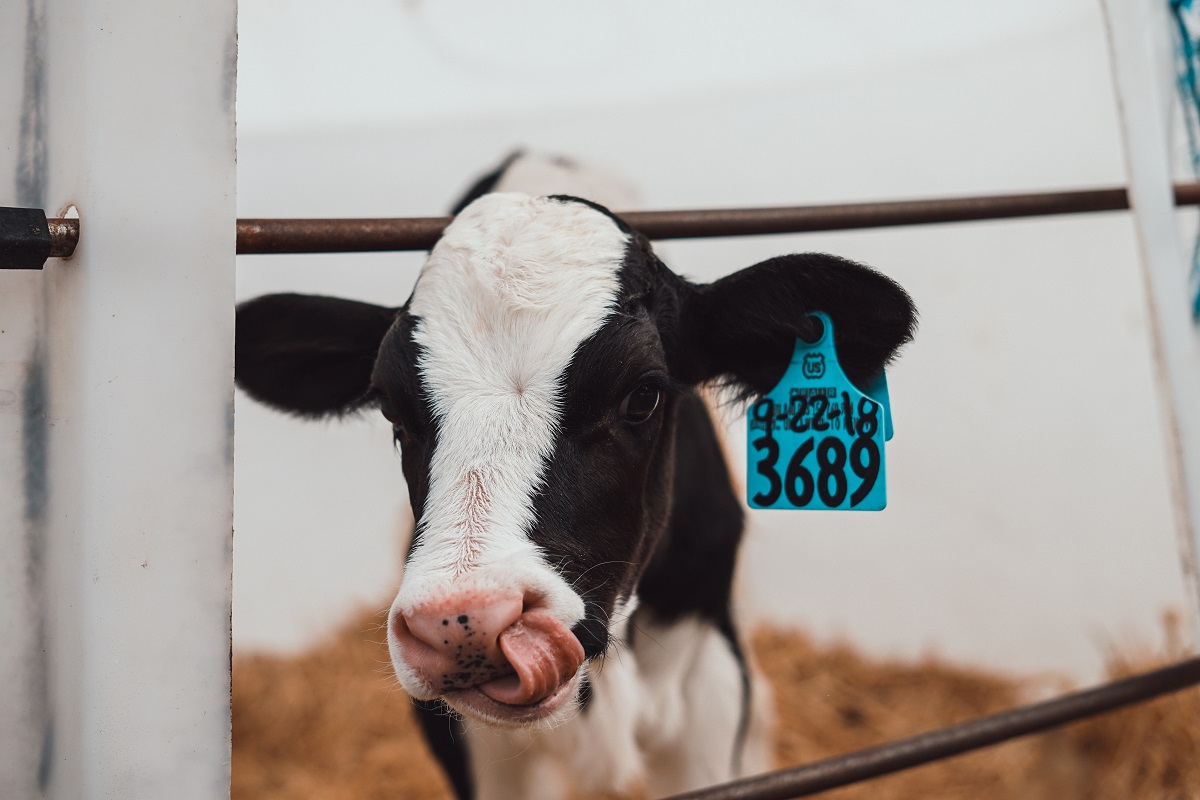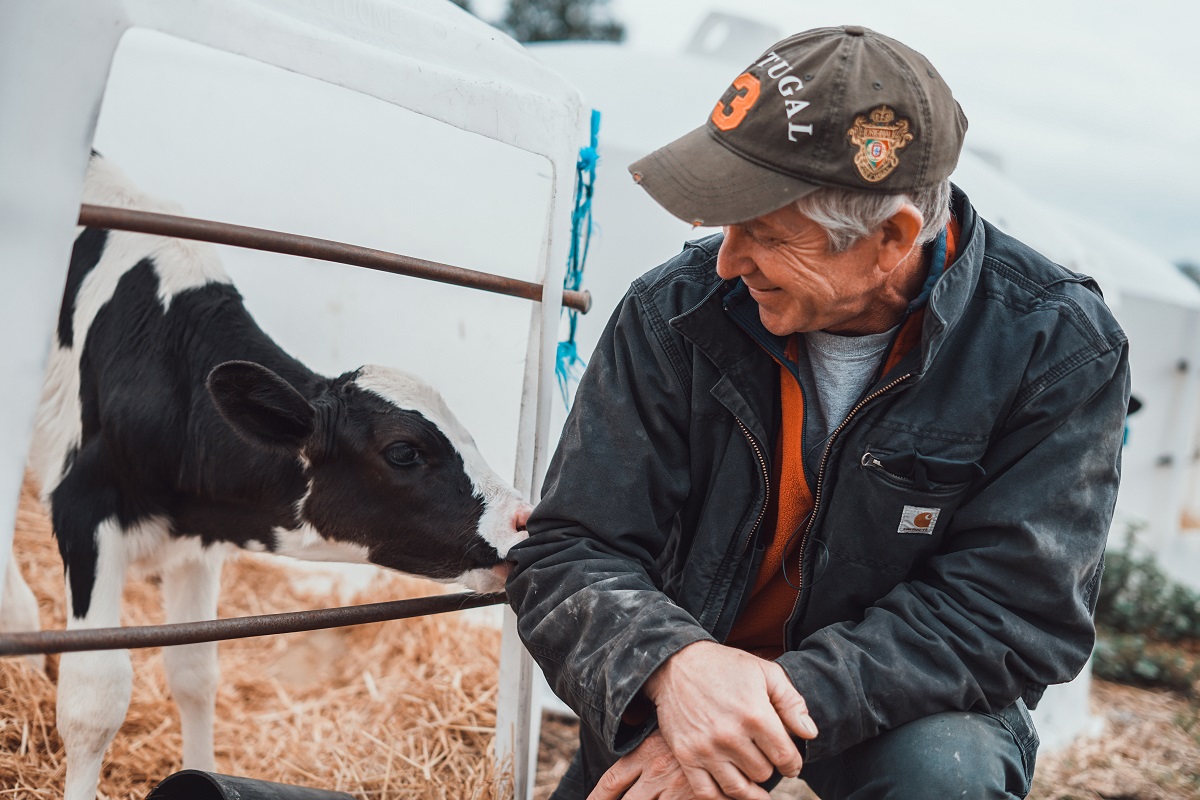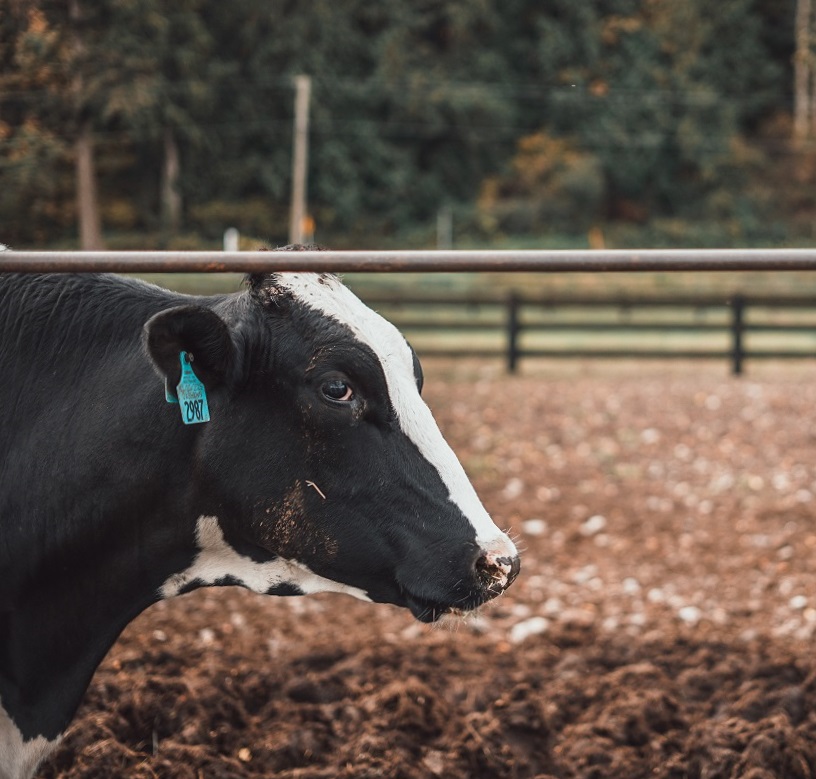Meet The Farmer
Ben Smith
RCPP Background
Location: Sequim, Washington
Project Lead: Clallam Conservation District
Puget Sound RCPP Project Area: Dungeness Watershed. RCPP funds are designated to help improve water quality in Sequim Bay, an area popular for recreational and commercial shellfish harvesting.
Project Description: Two nutrient management projects are planned for the farm. Upgrading a waste storage system for manure generated in calf pens and installing a large concrete slab for feeding cattle in winter. Both projects are intended to reduce the potential for ground water contamination. Additionally the Clallam CD is working with the farm to complete a Comprehensive Nutrient Management Plan (CNMP).
Meet Ben Smith
It’s a beautiful day on the peninsula when we pull into the Maple View Farm. We’ve arrived a little early for our appointment, giving us time to enjoy the view of the mountains and Sequim Bay in the distance. A few minutes later, a well-worn truck pulls up and out steps Ben Smith. Ben greets us with a warm smile and a welcoming handshake. We start our meeting with introductions to the baby calves in the nearby calf pens. They’re extremely adorable, making it hard to pry ourselves away to learn about the farm and projects that will be implemented with RCPP funding.
Fourth Generation Farmers
Ben Smith and his brother Troy are 4th generation dairy farmers. In the 1930s their great- grandfather started the farm in Clallam County because of its mild climate which allows dairy cows to thrive. Ben puts it this way, “Great grandpa picked an awesome spot to stop his wagon. Bless his heart.” Today, the Smith brothers milk around 400 dairy cows, shipping the milk to Darigold, and they grow about 650 acres of feed for their cows and a few acres of vegetable seed.
Family, Fun and Hard Work
There are number of things that make working on the farm fulfilling for Ben. It’s his love of the outdoors, working with his family, producing food, and helping the community. And when he sees his young niece and nephew feeding the calves in the pouring rain and snow, they are “amazingly powerful moments”. He feels assured “they’re doing great, they know how to work hard, and they’ll be okay.”
A Tradition of Stewardship
“We want to be good stewards for everybody. We’re worried about the salmon and shellfish, that’s part of our community. We want to make sure that we're being responsible and doing everything on our end so that we're not setting anything back and heading in the wrong direction,” Ben explained. And for this he gives credit to his parents. “It comes back to caring about your neighbors and being part of the community. Mom and dad had that mentality. So I think growing up with that core philosophy makes it easier, because it's kind of ingrained in us.”
Finding Balance with RCPP
Financially, farming has its peaks and valleys. The last two years have been lean, and conversations around the dinner table focus on how to keep ahead. Recently Ben’s 78 year old mother asked, “Do we need to let our calf feeder go? I can come down to feed the cows.” At times like this, having the financial incentives provided by RCPP make it easier to pursue projects that don’t necessarily provide a financial return. A concrete slab for the feeding area was one of those improvements, so when Ben heard that there were funds available for the project, he said, “we were gung-ho to participate.”
In Ben’s opinion, having this balance, whether it’s doing the right thing or responding to regulations is important to keeping our agriculture stable in the U.S. “Having programs like this helps us move the environmental responsibility ball forward without losing farmers.”
Conservation Districts Are the Bridge
The Maple View Family Farm is a long-time cooperator with the Clallam Conservation District and it was the conservation district that introduced Ben to the RCPP EQIP funds. He finds that the conservation district uncovers resources that farmers would never have the time to research. Ben explained, “So many folks that are willing to do the right thing, but they have no idea that there's help out there. The conservation district is out there beating the bushes, knocking on doors and saying, hey, we see a resource concern, you know, we have a program to cost share with you on this.”
A Bright Future for the Maple View Family Farm
Looking to the future, the goal is to keep the land in farming. The family is planning to sell the development rights for some of their land, making it farmland forever. And the future may include a fifth generation of Smith farmers. Ben’s nephew is currently working on a cattle farm in Oregon and he’s starting to think about coming back. “There's a good chance that in the next generation we’ll shift from a dairy over to a beef operation, but we’re all committed to keeping the farm in ag in some form or another, long term,” Ben said.
This is good news for agriculture in the Dungeness Watershed. The area once had over 300 dairy farms and many of those farms were lost to development. Today Maple View Farm is one of the two remaining dairy farms in all of Clallam County.
Story: Lorraine Nay, Alliance for Puget Sound Natural Resources
Photography: Courtney Baxter, The Nature Conservancy
This material is based upon work supported by the Natural Resources Conservation Service, U.S. Department of Agriculture, under award number: 68-0546-15-006. Any opinions, findings, conclusions, or recommendations expressed in this publication are those of the author(s) and do not necessarily reflect the views of the U.S. Department of Agriculture.




